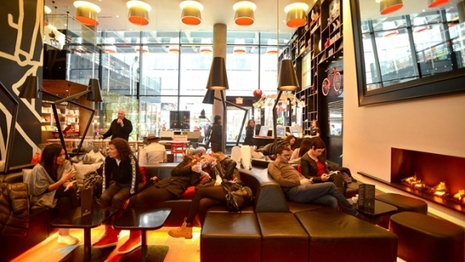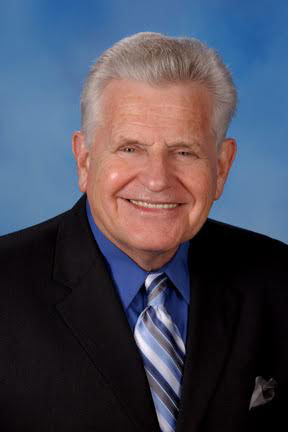Are Hotels Coveting only Half of the Millennial Market? Part Two | By David M. Brudney
 Are Hotels Coveting only Half of the Millennial Market? Part Two | By David M. Brudney
|
Part I dealt with understanding the millennials and their mindset - - now spending more than $200 billion annually on travel - - the influence of personalization, local expertise, location, and technology on their travel preferences - -
Faced with the very real impact of Airbnb and other alternative-lodging providers, I ended Part I with a question: what hotels can do/are doing to compete?
What hotels can do/are doing to compete?
In competing with lodging rentals, hotel brands have taken note and taking action.
Hotels are working to individualize their properties so they feel more boutique. Some hotels are now offering original guidebooks written by locals, while chains are creating collections of properties, like Hilton Curio, where the hotels are distinctive rather than cookie-cutter.
Hilton has rolled out a new brand, Tru, which Hilton says embraces "a millennial mindset." Hilton describes Tru as a "youthful energy, a zest for life, and a desire for human connection." Tru features "an updated check-in process with social media displays, and digital keys available through a smartphone app", according to the company.
Marriott has also been busy expanding its Moxy brand, a new hotel chain created especially for the millennial traveler, according to a company statement. The hotels, which initially launched in Europe, combine a contemporary design and "approachable service" at a reasonable price -- an obvious appeal to price-sensitive millennials who stay with Airbnb. Marriott expects to be operating 150 Moxy Hotels within a decade.
Starwood's Tribute brand features "from boutique resorts to intriguing hotels in prime urban locations, each Tribute Portfolio hotel has a story to tell", according to a company statement.
Starwood's Element brand is focusing on community and engagement - - both millennial hot spots. Element is rolling out new communal living spaces complete with a kitchen and dining area, to be shared by guests occupying four connecting hotel rooms.
Aloft, another Starwood brand, is showcasing new food and beverage offerings, featuring healthier, fresh, locally sourced ingredients. Mindful of millennials' love affair with technology, guests at the "new" Aloft can order and pay via a touchscreen kiosk.
Hyatt announced the inclusion into its brand umbrella of The Unbound Collection by Hyatt that "connects independently branded hotels with the strength of Hyatt's resources," according to a company statement.
Future hotels in The Unbound Collection by Hyatt will be equally story-worthy, whether it be through a fascinating past, an exclusive location, famous architecture and design, or an award-winning dining experience, Many of these independent hotels are located worldwide at destinations millennials find attractive.
Unbound Collection includes independent properties such as The Driskill Hotel in Austin, Texas, the Hôtel du Louvre in Paris, France, the Carmelo Resort & Spa in Carmelo, Uruguay, and the Coco Palms Resort in Kauai, Hawaii.
In a strategy to compete with Airbnb on its own turf, Accor is integrating its home rental brands Onefinestay, Travel Keys and Squarebreak into a single business unit totaling more than 10,000 homes that will be consolidated within the Onefinestay brand, the company said. Accor will be providing concierge services to the listed properties.
"With this new step in consolidating our leadership position, Onefinestay now has a sound platform combining brand excellence, a vast and complementary offer and distribution efficiency," Onefinestay CEO Javier Cedillo Espin said in a news release.
Accor also entered into a joint venture to further grow collaborative workspace company Nextdoor in France and the rest of Europe, according to a company news release. The company projects eight operational sights in France with more than 4,000 clients by the end of 2017.
Another chain moving into home rentals is Choice Hotels, which offers Vacation Rentals by Choice Hotels.
Understanding millennials' mindset
"Hotels are for people to stay in a city. What we offer is a place for people to live in a city," is how Marc Sandfort, area manager of Ascott U.K., describes the key difference between hotels and home-sharing providers.
"What we are witnessing with the rise of alternate lodging providers is not only a proliferation of wholly new travel demographics but also a more passive yet broader consumer re-education. Travelers realize that they have significantly more options nowadays in terms of accommodations as well as their ability to work while away from their primary residences", writes hotel mogel's Larry Mogelonsky.
One of the lessons hoteliers can learn from the alternative-accommodations providers is that Airbnb built a platform to connect those millennial travelers with hosts, enabling them to stay like locals at various dream destinations. Not the platform they built, perhaps Airbnb's greatest genius, however, is with its understanding of the millennial's mindset.
Hoteliers should take note, and with the right technology, they may be even better suited to delight guests through personalization and a local touch, Gilad Berenstein. CEO, Utrip.
Hotels should furnish travelers with personalized journeys that consider each guest's unique preferences, budgets and interests, writes Berenstein.
Hotels compete with Airbnb in two ways: First, by emphasizing the features that distinguish a hotel from an Airbnb property, and second, by integrating the Airbnb features travelers (millennials) are seeking into their hotels, Alan E. Young, Puzzle Partner.
Despite the introduction of Business Travel Ready (BTR), Airbnb can't offer the level of service that traditional hotels can/do. Yet over the past year, the number of Airbnb business trips has tripled. Nearly 10 percent of the site's trips are work-related, according to data from the company, Hotel Magazine, 5/1/17.
Airbnb experienced a big bump in business-related booking during 2016. Airbnb has grown its BTR listings to more than 150,000 globally, 80 million guests in 2016, up from 40 million guests in 2015. As a result, Airbnb is launching a search tool focused around business travel ready listings, Hotel Magazine, 5/1/17.
This new search tool will allow business travelers, many of whom millennials, to search homes and apartments Airbnb deems Business Travel Ready. Requirements for a BTR listing include:
- Space with Wi-Fi
- A desk
- Self-check-in through a doorman or digital lock and;
- Amenities such as free shampoo, iron and a hairdryer.
Hotel guests at "traditional" hotels don't have to worry about returning the key to the owner should they need to checkout early or late, or if a plane is delayed, or if the toilet gets backed up, plus security and compliance with safety regulations.
Hoteliers should do
Hoteliers should take note, and with the right technology, they may be even better suited to delight guests through personalization and a local touch, Gilad Berenstein, CEO, Utrip.
- Hotels should furnish travelers with personalized journeys that consider each guest's unique preferences, budgets and interests, Gilad Berenstein;
- Thriving hotels guide guests to exceptional neighborhoods and rarer attractions;
- Integrate trip-planning technologies to complement a hotel's digital presence to invite personalization and discovery, and to create an experience that is differentiated;
- It is imperative that a hotel's digital platforms, from its website to social media, provide value in every stage of the travel lifecycle;
-
Making reservations via millennial mobile devices
must be seamless, no hassle, and done quickly; - Ensure that staff has the tools to give targeted recommendations to guests, rather than overused lists or old brochures;
- Consider partnering with a trip-planning platform as a seamless and cost-effective way to add white label technologies to the online and mobile experience for guests.
- Utilize your network to partner with well-known locals willing to share their recommendations and tips with travelers.
These partner solutions enable destination discovery that combines the best of local expertise, human experience and artificial intelligence to make trip planning easy, enjoyable and personal. This means deeper site engagement for hotels, curated content, longer stays and better guest experiences. Ultimately, it allows hotel owners and operators to best compete with Airbnb by getting in bed with today's traveler.
Hotels must be more nimble when it comes to competing with these room rental platforms for guest demand, said Krissy Gathright, Apple Hospitality REIT, Hotel News Now, July 27, 201). Hotels stand apart because of the consistency of branded hotel products, said Gathright.
"It goes back to making sure that as hoteliers and brands, we continue to deliver the brand proposition," "That makes the customer want to come back", she said.
So, what do you think? Is the millennial market "marginalized"? Who amongst these 74 million plus millennials are spending $200 billion annually on travel? Will millennials continue to favor short-term, home-sharing lodging accommodation providers over hotels (44 percent)? Will the "one in three" millennials still living with parents become travel and hotel consumers? What will it take? p
Are the hotel brands doing enough to compete effectively within the shared economy, home rental world? Do they, will they zero in on that millennial mindset?
What's your take? I very much welcome your comments.
David Brudney & Associates
www.DavidBrudney.com
2938A Luciernaga Street
USA - Carlsbad, CA 92009
Phone: 760-994-9266
Email: david@davidbrudney.com
OBITUARY: Death of THE Salesman
Remembering Peter A. Smith | By David Brudney
Are Hotels Coveting only Half of the Millennial Market? Part One | By David M. Brudney

